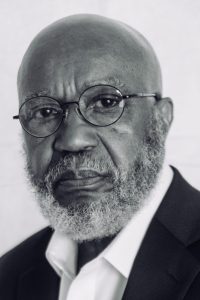By Rev. Norman Franklin
Vashti Murphy McKenzie, in 2000, became the first female bishop in the more than two-hundred-year history of the African Methodist Episcopal Church. Murphy shattered the glass ceiling because of her gifts, preaching abilities and her impressive credentials.
She was born into the prominent Murphy family on May 28, 1947. Her great-grandfather, John H. Murphy, started the Afro-American Newspaper in1892. Her grandfather, Carl H. Murphy, continued in the publishing business with the newspaper; her grandmother, Vashti Turly Murphy, was a founding member of Delta Sigma Theta. The Christian African American college sorority currently has a national membership of more than a quarter million.
McKenzie studied at the University of Maryland, briefly dabbled in journalism, earned her Master of Divinity from Howard University and her Doctor of ministry from the United Theological Seminary in Dayton, Ohio. She was assigned a small congregation in Chesapeake City and then Payne Memorial AME in Baltimore. It was her leadership in transforming Baltimore’s inner city that gained her notice and triggered her meteoric rise to bishop.
She started various community empowerment projects: job service programs, a summer school program, a food pantry, and a senior care center. Bishop McKenzie employed her community-focused spirituality – the church solving problems in the community – to help start parental support systems for AIDS orphans in South Africa.
Bishop McKenzie served as the presiding prelate of the Thirteenth Episcopal District and president of the AME Council of Bishops before retiring. She is currently the interim president and general secretary of the National Council of Churches of Christ in the USA. She is the author of ‘Not Without a Struggle’ (1996), ‘Strength in the Struggle’ (1998), and ‘Journey to the Well’ (2002).
Her sermon, ‘Keep the Pressure On’ is included in “Preaching with Sacred Fire” An Anthology of African American Sermons. It was preached at the Samuel DeWitt Proctor Pastors Conference in Atlanta, Georgia, February 2004. Her sermon text was Mark 1:4-8.
John was a lone voice preaching in the wilderness about the One who is to come. “After me will come one more powerful than I, the thongs of whose sandals I am not worthy to stoop down and untie. I baptize you with water, but He will baptize you with the Holy Spirit.” Mark 1:8, (NIV)
Bishop McKenzie honed in on the pressures of his calling: to stand alone and preach the coming of our Lord. And to keep the pressure on the community to hear and repent. She summarized the pressures John endured with his call and in his day with application for our present day.
Pressure, she defines, is the weight of something that bears down upon something, around something that exerts force. When God’s will bears down on your will, that’s pressure. When your way of life fails to intersect with God’s word, that’s pressure. When decisions are made out of fear rather than faith, that’s pressure. Some of the pressures of ministers are: the pressures of perfection, of relevance, of performance, of privacy and of potential.
Today we face the pressure to conform to an idea of Christianity, and an image of a Savior whose construct is far right conservative and clothed in a robe of Christian Nationalism.
“All of Jerusalem came out to John and he heard their confession and they repented and were baptized,” she preached. This illustrates and affirms her community focused spirituality. “When people’s needs are met, they will go where their needs are met.”
Are the pews empty in our churches? John, she infers, is our example of one who survived the pressure of his profession and applied pressure in his community because he wasn’t afraid to stand alone.
The ethics of our faith should govern our lives. We cannot deny the interconnectedness of the social, economic, political, and spiritual dynamics of our culture and society. The evidence of our faith should be demonstrated in each circle. We fall short in every area, but we cannot stop striving to reach the plateau, we have to keep the pressure on our culture, and on our spiritual domain; we have to keep on pushing.
Pushing, defined by Merriam-Webster, is something marked by ambition, energy, enterprise, and initiative. Pushing, as employed by Curtis Mayfield, the Urban Prophet, in his 1960s R&B hit, ‘Keep on Pushing,’ the title a thematic double entendre of social and spiritual message, was inspiration music for a generation of African Americans who were pushing back against systemic social injustice.
We can’t stop now; this centuries old system of dehumanizing, marginalizing and oppressing the African American, the poor, and the immigrant, manipulating Scriptures and spiritualizing oppression, must yield to justice and mercy, and grant us that we may walk humbly with God.
The opinions on this page are those of the writers and not necessarily those of the AFRO. Send letters to The Afro-American • 233 E. Redwood Street Suite 600G
Baltimore, MD 21202 or fax to 1-877-570-9297 or e-mail to editor@afro.com
The post Op-ed: Keep on pushing, we can’t stop now! appeared first on AFRO American Newspapers .










